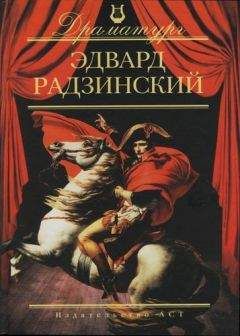Илья Франк - Английский язык с Р.Л. Стивенсоном. Остров сокровищ
connoisseur [kOnq`sq:] signboard [`saInbLd] length [leNT] pleasant [pleznt]
4. My father told him no (отец сказал ему, /что/ нет), very little company (очень
мало народу), the more was the pity (тем хуже = к сожалению: «тем болшье
была жалость»).'
1. in the high, old tottering voice that seemed to have been tuned and broken
at the capstan bars. Then he rapped on the door with a bit of stick like a
handspike that he carried, and when my father appeared, called roughly for a
glass of rum.
Мультиязыковой проект Ильи Франка www.franklang.ru
6
2. This, when it was brought to him, he drank slowly, like a connoisseur,
lingering on the taste, and still looking about him at the cliffs and up at our
signboard.
3. 'This is a handy cove,' says he, at length; 'and a pleasant situated grog-shop.
Much company, mate?'
4. My father told him no, very little company, the more was the pity.'
1. 'Well, then (итак),' said he, 'this is the berth for me (эта якорная стоянка для
меня). Here you matey (сюда, браток),' he cried to the man who trundled the
barrow (крикнул человеку, который катил тачку); 'bring up alongside and help
up my chest (греби сюда и помоги поднять = втащить мой сундук; to bring up
— поставить или стать на якорь; alongside — по борту, рядом). I'll stay here
a bit (я останусь здесь немного = ненадолго),' he continued (продолжил). 'I'm a
plain man (я простой человек); rum and bacon and eggs is what I want (ром,
бекон и яйца = яичница — /вот то/, что я хочу = все, что мне нужно), and that
head up there for to watch ships off (тот мыс вон там, /хорошо подходит/, чтобы
смотреть на корабли вдали /проходящие в море/). What you mought call me
(как вы можете называть меня; mought = might)? You mought call me captain
(можете называть меня капитаном). Oh, I see what you're at — there (понимаю,
чего вы ждете — вот; to be at — намереваться);' and he threw down three or
four gold pieces on the threshold (и он бросил три или четыре золотые монеты
на порог; piece — кусок; монета). 'You can tell me when I've worked through
that (можете сказать мне = обратиться, когда кончится это; to work —
работать, использовать; through — через, полностью),' says he, looking as
fierce as a commander (глядя так же свирепо, как командир = с видом
командира).
Мультиязыковой проект Ильи Франка www.franklang.ru
7
berth [bq:T] continued [kqn`tInjHd] pieces [`pJsIz] threshold [`TreShquld]
fierce [fIqs]
1. 'Well, then,' said he, 'this is the berth for me. Here you matey,' he cried to
the man who trundled the barrow; 'bring up alongside and help up my chest.
I'll stay here a bit,' he continued. 'I'm a plain man; rum and bacon and eggs is
what I want, and that head up there for to watch ships off. What you mought
call me? You mought call me captain. Oh, I see what you're at — there;' and
he threw down three or four gold pieces on the threshold. 'You can tell me
when I've worked through that,' says he, looking as fierce as a commander.
1. And, indeed (действительно), bad as his clothes were (/хотя/ плоха его
одежда была), and coarsely as he spoke (/хотя/ грубо он говорил = речь его
была грубой), he had none of the appearance of a man who sailed before the mast
(он ничего не имел от внешности человека, который плавал перед мачтой =
не был похож на простого матроса /части старших лиц судового экипажа
находились позади мачты/); but seemed like a mate or skipper (а был похож на
помощника капитана или шкипера; to seem — казаться) accustomed to be
obeyed or to strike (привыкшего, чтобы ему подчинялись = отдавать
приказания или /просто/ бить; to obey — подчиняться). The man who came
with the barrow (человек, который пришел с тачкой) told us the mail had set
him down this morning before at the 'Royal George;' (рассказал нам, /что/ почта
высадила его этим утром раньше = он прибыл на почтовых в /гостиницу/
«Король Георг») that he had inquired (что он расспрашивал) what inns there
were along the coast (какие трактиры находятся на побережье), and hearing
ours well spoken of (и услышав, /что/ о нашем хорошо отзывались), I suppose
(полагаю), and described as lonely (описывали как уединенный), had chosen it
from the others for his place of residence (выбрал его из других своим местом
Мультиязыковой проект Ильи Франка www.franklang.ru
8
проживания). And that was all we could learn of our guest (это было все, что мы
могли узнать о нашем госте).
clothes [klquDz] coarsely [`kLslI] appearance [q`pIqrqns] mast [mRst] obeyed
[qu`beId]
1. And, indeed, bad as his clothes were, and coarsely as he spoke, he had none
of the appearance of a man who sailed before the mast; but seemed like a
mate or skipper accustomed to be obeyed or to strike. The man who came
with the barrow told us the mail had set him down this morning before at the
'Royal George;' that he had inquired what inns there were along the coast,
and hearing ours well spoken of, I suppose, and described as lonely, had
chosen it from the others for his place of residence. And that was all we could
learn of our guest.
1. He was a very silent man by custom (он был очень молчаливым человеком по
обычаю = обыкновенно). All day he hung round the cove (весь день он бродил
по /берегу/ бухты; to hang round — слоняться), or upon the cliffs (или
взбирался на скалы; to hang upon — повиснуть, прицепиться), with a brass
telescope (c медной подзорной трубой); all evening he sat in a corner of the
parlour next the fire (весь вечер он сидел в углу общей комнаты /зала/ у огня),
and drank rum and water very strong (и пил ром с водой очень сильный = мало
разбавленный). Mostly he would not speak when spoken to (в основном, он не
отвечал, когда к нему обращались; to speak to — разговаривать /с кем-то/);
only look up sudden and fierce (лишь взглянет вверх = поднимет глаза, резко и
свирепо) and blow through his nose like a fog-horn (свистит через нос как
/корабельная/ сирена; to blow — дуть, выдувать); and we and the people who
Мультиязыковой проект Ильи Франка www.franklang.ru
9
came about our house (мы и люди, которые случились в нашем доме =
посетители) soon learned to let him be (вскоре научились оставлять его в
покое). Every day (каждый день), when he came back from his stroll (когда он
приходил назад = возвращался со своей прогулки), he would ask if any
seafaring men had gone by along the road (спрашивал, проходили ли мимо
какие-нибудь моряки по дороге). At first we thought (сначала мы думали) it
was the want of company of his own kind (/что/ это был недостаток компании
его собственного типа = таких же, как он) that made him ask this question
(который заставляла его задавать этот вопрос); but at last we began to see (но
наконец мы начали видеть = понимать) he was desirous to avoid them (/что/ он
стремился избежать их; desirous — желающий, жаждущий). When a seaman
put up at the 'Admiral Benbow' (когда какой-то моряк останавливался в
«Адмирале Бенбоу») (as now and then some did (как время от времени
некоторые делали), making by the coast road for Bristol (двигаясь прибрежной
дорогой в Бристоль)) he would look in at him through the curtained door (он
взглядывал на него через занавешенную дверь) before he entered the parlour
(прежде чем входил в комнату); and he was always sure to be as silent as a
mouse (и он всегда был тихим, словно мышь; sure — непременно, точно)
when any such was present (когда любой подобный /человек/ присутствовал).
silent [`saIlqnt] parlour [`pRlq] fierce [fIqs] people [pJpl] desirous [dI`zaIqrqs]
1. He was a very silent man by custom. All day he hung round the cove, or
upon the cliffs, with a brass telescope; all evening he sat in a corner of the
parlour next the fire, and drank rum and water very strong. Mostly he would
not speak when spoken to; only look up sudden and fierce, and blow through
his nose like a fog-horn; and we and the people who came about our house
soon learned to let him be. Every day, when he came back from his stroll, he
would ask if any seafaring men had gone by along the road. At first we
Мультиязыковой проект Ильи Франка www.franklang.ru
10
thought it was the want of company of his own kind that made him ask this
question; but at last we began to see he was desirous to avoid them. When a
seaman put up at the 'Admiral Benbow' (as now and then some did, making
by the coast road for Bristol) he would look in at him through the curtained
door before he entered the parlour; and he was always sure to be as silent as a
mouse when any such was present.
1. For me, at least (для меня, по крайней мере), there was no secret about the
matter (там не было секрета об этом деле = я знал, в чем дело); for I was, in a
way, a sharer in his alarms (так как я был, в некотором смысле, участником в
его тревогах = он поделился со мной своей тревогой; to share — делить,
принимать участие). He had taken me aside one day (он отвел меня в сторону
в один день = однажды), and promised me a silver fourpenny (и обещал мне
/платить/ серебряную четырехпенсовую монету) on the first of every month
(первого /числа/ каждого месяца) if I would only keep my 'weather-eye open for
a seafaring man with one leg,' (если я буду только «смотреть в оба, не появится
ли моряк с одной ногой»; to keep eyes open — смотреть в оба, не зевать;
weather-eye — бдительность) and let him know the moment he appeared (дам




